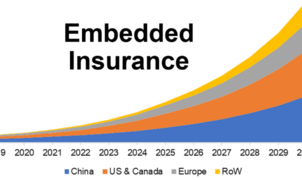Taking advantage of car insurance discounts can often be the difference between cheap car insurance and premiums that are too expensive. Luckily, top insurers offer dozens of discounts based on driver history, affiliations, vehicle features and customer loyalty.
We at the MarketWatch Guides Team will explain the different types of car insurance discounts available to drivers and ways to lower car insurance rates. Keep in mind that rates can vary between insurers, so it’s important to shop around and compare quotes from a few of the best car insurance companies.

Common Car Insurance Discounts
While each auto insurer offers a slightly different selection of car insurance discounts, there are some that can be found commonly throughout the industry. Most of these standard auto insurance discounts can be grouped into the following categories:
Driver Safety
Most insurers find ways to reward safe drivers. These are a few of the common car insurance discount types for those who maintain good habits behind the wheel:
Good Driver (Accident-Free) Discounts
Going three to five years without an accident can earn you significant discounts with many top auto insurers. The requirements for a good driver discount vary from one provider to another, so be sure to ask your agent if you qualify.
Usage-Based Insurance Discounts
This type of discount comes with the use of a telematics program that tracks your driving habits — either through a mobile app or plug-in device. If you avoid sudden stops, rapid acceleration and speeding while enrolled in such a program, you can often save up to 30% upon policy renewal with certain companies.
Defensive Driving Course Discounts
Completing a defensive driving course typically takes just a few hours, but it can save you 10% to 15% on your car insurance premiums. Before you sign up for any driving class, make sure it’s approved by your provider. Some companies only offer these discounts to younger drivers and senior citizens.
Low-Mileage Discounts
If you only drive occasionally, you stand to save as much as 20% on your car insurance premiums. The average driver puts about 12,000 miles on the odometer each year. Those who drive less than 7,500 miles annually are often eligible for savings. Some insurers require a telematics device to verify mileage.
Driver Status
Driver profile often means as much as driving behavior when it comes to car insurance discounts. The following savings opportunities are based on drivers’ personal attributes:
Student Discounts
Almost every auto insurer offers some type of discount for good students. This is great for customers, as insurance rates are especially high for drivers under 21. Full-time students who maintain at least a “B” average often qualify for good student discounts as high as 25%.
There are also away-from-home discounts for college students who leave their vehicles at home while attending school 100 or more miles from home. These can also be called distant student discounts.
Military and Federal Employee Discounts
USAA provides insurance policies exclusively to active military, veterans and their immediate families. Most other providers offer discounts of up to 15% for members of the military and veterans. Discounts for federal employees vary, with Geico offering especially generous savings to drivers in that group.
Professional and Academic Discounts
Insurance companies have various affiliations with trade organizations and alumni associations. Geico is the industry leader here, partnering with over 500 professional and university organizations to offer discounted rates.
Senior Discounts
Some insurers offer discounts to drivers 55 and older. You’ll also find incentives for drivers over 55 to keep their skills sharp through online driver improvement programs.

Policy Details
There are plenty of policy-related discounts to be earned with auto insurance companies. Some of these discounts are automatically applied, while you have to request others. Here are a few common types of policy discounts:
Bundling/Multi-Policy Discount
These discounts are typically easy to find, as insurers have plenty of incentive to bring you on board for different types of protection. There’s a wide range of savings to be unlocked by bundling your auto policy with home, life, boat or other types of coverage. Some companies offer as much as 25% off your total insurance premium when you bundle policies.
Multi-Vehicle Discount
Savings potential varies with multi-car discounts. Some insurers like State Farm offer as much as 25% off for adding multiple vehicles to your policy. Many companies offer discounts in the 10% range for insuring multiple cars.
Payment Discounts
Pay-in-full, autopay and paperless statement discounts fall under this umbrella. Paying your entire premium up front often results in savings of about 10% — whether for a six-month or year-long term.
Setting up automatic payments from a checking account, debit or credit card can save you 5% to 10%. Going paperless saves insurers some overhead costs, so they often reward doing so with 10% discounts.
Vehicle Attributes
Specifics about your vehicle can also earn you special car insurance discounts. Some companies even offer discounts simply for insuring a new car. Here are a few other common discounts related to vehicle attributes:
Anti-Theft Discounts
Installing an anti-theft device can save you five to 15% on your comprehensive coverage, although that’s typically the cheapest element of your total protection. If your vehicle is a common target of auto thieves, it’s a good idea to have an anti-theft device installed even if the discount is marginal.
Anti-Lock Brakes Discounts
Many insurers offer discounts of five to 10% off your collision coverage premium for having an anti-lock braking system (ABS) factory-installed. It’s a good idea to ask your agent to verify this discount, as it should be automatically applied.
Passive Restraint Discounts
This type of discount applies to seat belts and front airbags. You can save up to 30% on your personal injury protection (PIP) or medical payments (MedPay) premiums simply by having factory-installed seat belts and front airbags.




















































































































































